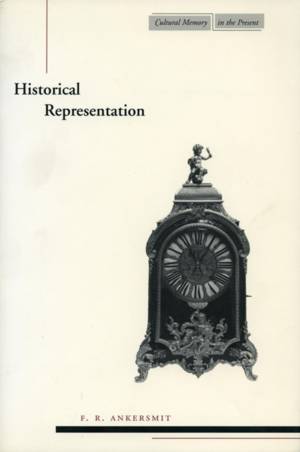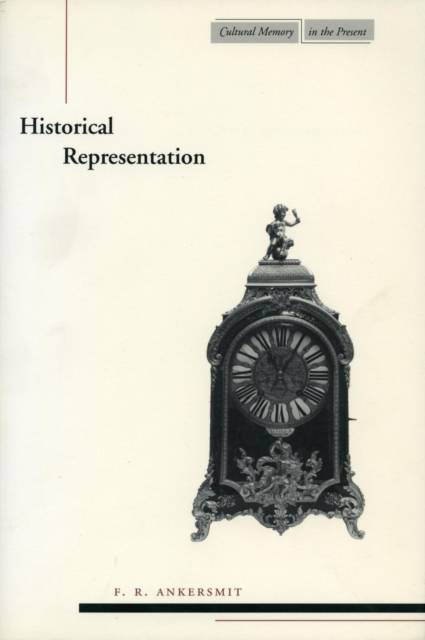
- Afhalen na 1 uur in een winkel met voorraad
- Gratis thuislevering in België vanaf € 30
- Ruim aanbod met 7 miljoen producten
- Afhalen na 1 uur in een winkel met voorraad
- Gratis thuislevering in België vanaf € 30
- Ruim aanbod met 7 miljoen producten
Omschrijving
This book fully recognizes the aestheticism inherent in historical writing while acknowledging its claim to satisfy the demands of rational and scientific inquiry. Focusing on the notion of representation and on the necessity of distinguishing between representation and description, it argues that the traditional semantic apparatus of meaning, truth, and reference that we use for description must be redefined if we are to understand properly the nature of historical writing.
The author shows that historical representation is essentially aesthetic, though its adequacy can be discussed rationally. He defines the criteria for representational adequacy, and examines the relationship between these criteria and value judgments. He also investigates the historicist conception of historical writing and the notions of identity and narrativity. This investigation takes place against the backdrop of the ideas of four of the most influential contemporary historical theorists: Erich Auerbach, Arthur Danto, Hayden White, and Jörn Rüsen.
The book aims to identify and to explore for historical theory the juste milieu between the extravagances of the literary approach to historical writing and the narrow-mindedness of empiricists. The search for this juste milieu leads to a rationalist aesthetics of historical writing, a position that repeats both the aesthetic dimension of all historical writing and the criteria defining the rationality of the discipline of history.
Specificaties
Betrokkenen
- Auteur(s):
- Uitgeverij:
Inhoud
- Aantal bladzijden:
- 336
- Taal:
- Engels
- Reeks:
Eigenschappen
- Productcode (EAN):
- 9780804739795
- Verschijningsdatum:
- 2/01/2002
- Uitvoering:
- Hardcover
- Formaat:
- Genaaid
- Afmetingen:
- 155 mm x 229 mm
- Gewicht:
- 557 g

Alleen bij Standaard Boekhandel
Beoordelingen
We publiceren alleen reviews die voldoen aan de voorwaarden voor reviews. Bekijk onze voorwaarden voor reviews.









